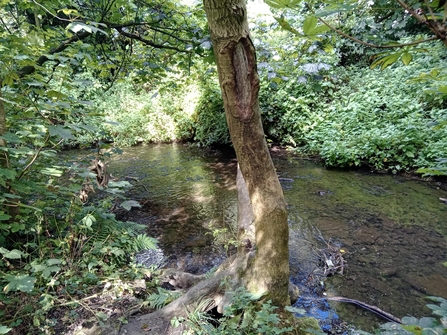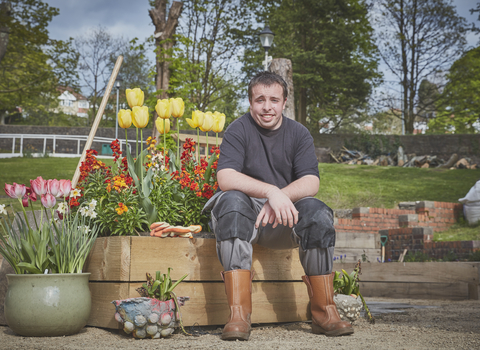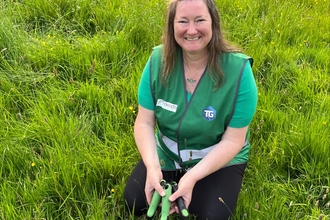Investigating the impact of a housing development on local wildlife
Everyone enjoys paddling in the water. It’s fun but with some serious science behind it.
The Wildlife Watchers, a group of residents in Nuneaton, Warwickshire, were worried about the impact that a new housing development would have on the quality of the water in a local stream, Wem Brook. They were concerned that run-off from the building site might be causing pollution.
With the help of Warwickshire Wildlife Trust, the group carried out a kick survey to record the aquatic invertebrates living in the brook.
This involves standing in the water with a net and kicking up the bed of the brook to collect the insects that are disturbed. The net is then emptied into a tray of water where the insects are identified and counted. The number and variety of insects is a good indication of the water quality.
Photo credit / Warwickshire Wildlife Trust
Unfortunately, only a small number and diversity of species were counted, indicating that the water quality was not as good as hoped.
Recently, the group caught sight of water voles on the brook near the community centre. As one of the UK’s most endangered mammals, the group were spurred on to repeat the survey a second time to see if there had been any changes to the brook’s invertebrate population.
Water vole populations are declining fast in the UK so a suitable habitat, good water quality and adequate food sources are vital for their survival and expanding their range.
High water levels caused by heavy Spring rainfall meant the survey had to be postponed. By the end of April, the water level finally dropped to a safe and manageable depth so the kick survey could go ahead.
The group took turns to dip the net in the water and kick up the silt and stones with their Wellies.
“This is like pond-dipping for grown-ups,” said Lee, Community Organiser for Warwickshire Wildlife Trust. “Everyone enjoys paddling in the water. It’s fun but with some serious science behind it.”
The bed of the brook is kicked up for exactly 60 seconds in three places along the brook at the same location each season so the methodology remains consistent every time.
Lee added: “An inquisitive local family joined us on the bankside to find out why we were all staring into a plastic tray full of water, mud and pebbles. Insects emerged as the silty water cleared and these were identified and then sorted into trays by species for counting.

Photo credit / Warwickshire Wildlife Trust
The Wildlife Watchers found some interesting invertebrates including a blue-winged mayfly larvae with its distinctive stripy legs, but the total number of insects and the diversity of species was a little disappointing. They also found two types of fish: a bullhead and minnow which are both favourite food for kingfishers. It’s important to do regular surveys to understand the condition of the brook throughout the year in each season and build up a picture of any changes taking place.
Inspired by their second kick-survey experience, the Wildlife Watchers would like to do more regular surveys in future and are investigating funding for the kit they need to become independent with help from a Warwickshire County Council Community Development Worker who also has an interest in wildlife. They hope the community centre, which is close to the brook, will agree to store their kit between surveys.
The group needs to gather more evidence before it can share results with the housing development but the residents say this is definitely on the cards. It will be important that they keep doing the surveys several times a year to build up an accurate picture of the water quality in all seasons.
Exciting plans lie ahead for the Attleborough Wildlife Watchers to help Warwickshire Wildlife Trust improve water vole habitat by installing Coir rolls and water vole hotels in the area.


The Wildlife Trusts
Have you been part of a community nature project?
We'd love to hear from you! Your experiences will be shared right here on the Community Hub and will inspire others to take action in their own neighbourhoods.

